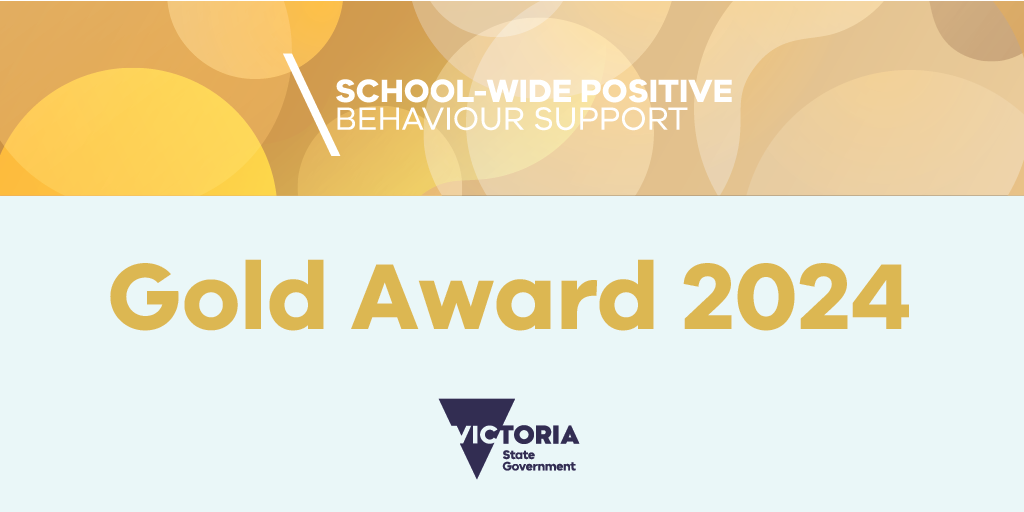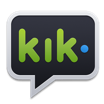Student Wellbeing

Mackellar Primary School is committed to providing a safe, secure and stimulating learning community where all students feel motivated and engaged in their learning and display a strong sense of connectedness to teachers, peers and school. We also provide exemplary programs in a vibrant, dynamic and technologically rich environment where students are empowered to become 21st Century learners and responsible citizens of the global community. Mackellar Primary School acknowledges that student wellbeing and student learning outcomes are inextricably linked.
Social and Emotional Learning
At Mackellar Primary School, we believe that every child has the right to an education and the potential to learn and develop in a safe and supportive environment. We believe in creating success for every child by having high expectations for every child and by creating an environment in which they can thrive. We believe that children require differing opportunities and support and as such we recognise working with families to support children’s learning and development is crucial. At Mackellar Primary School we are committed to the implementation of School-Wide Positive Behaviour Support (SWPBS) and Rights, Resilience and Respectful Relationships (RRRR) to create and maintain a safe and supportive learning environment. SWPBS and RRRR are effective, evidence-based frameworks that address social behaviour and academic outcomes. It is for this reason we expect all teachers to adhere solely to this model of teaching social and emotional learning.
Resilience, Rights and Respectful Relationships Education
Mackellar Primary School is proud to be a lead school in the Resilience, Rights and Respectful Relationships initiative. The purpose of the Respectful Relationships Education is to support schools in promoting and modelling respect, positive attitudes and behaviours, and to teach our young people how to build healthy relationships, resilience and confidence.
Everyone in our community deserves to be respected, valued and treated equally. We know that respectful attitudes and behaviours can be achieved when positive attitudes, behaviours and equality are embedded in our education settings. Respectful Relationships is about fostering a culture of respect and equality across our entire community, from our classrooms to staffrooms, sporting fields and social events. This whole school approach leads to positive impacts on student’s academic outcomes, their mental health, classroom behaviour, and relationships between teachers and students.
The Resilience, Rights and Respectful Relationships (RRRR) learning materials cover eight topics of Social and Emotional Learning across all levels of primary and secondary education:
- Emotional Literacy
- Personal Strengths
- Positive Coping
- Problem-solving
- Stress Management
- Help Seeking
- Gender and Identity
- Positive Gender Relationships
Education Program
The Respectful relationships education program takes a developmental approach to content and delivery. Over the years of schooling from Foundation through to Year 12, students will be exposed to learning opportunities that help them build respectful relationships in their lives.
Foundation to Year 2
Students develop the capacity to understand and self-regulate their emotions in ways that account for their feelings and the feelings of others. They also develop skills to initiate social interactions.
The program content explores the people who are important to these young students and develops their capacity to initiate and maintain respectful relationships in different contexts, including at school, at home and in the classroom. Students explore their own sense of self and the factors that contribute to and influence their identities. They learn about emotions and how to enhance their interactions with others as they grow older.
Years 3 to 6
The program’s focus broadens to include the knowledge, understanding and skills required to support students’ wellbeing and that of their family and friends. Personal and social skills take on an increasing importance as they look to family, peers and the community for role models. They develop communication skills, social skills and behaviours required for respectful relationships. They also begin to explore personal and social factors that support and contribute to their identities and emotional responses in varying situations. Students explore knowledge, understanding and skills that help them build and maintain respectful relationships. They also develop skills to manage their emotions and examine how the nature of their relationships may change over time.
Values
Mackellar Primary School’s beliefs about behaviour and learning are supported by our school Values which are aligned with School-wide Positive Behaviour Support (SWPBS). Students are explicitly taught to strive to achieve their personal best, whilst demonstrating the values of:
- Respect
- Resilience
- Learning
- Teamwork
Implementing SWPBS is ongoing and constantly adapted to meet the needs of schools.
School-Wide Positive Behaviour Support
School Wide Positive Behaviour Strategies is a holistic approach to behaviour management at Mackellar Primary School. In each classroom we have a SWPBS matrix that is explicitly taught each Monday morning after assembly and is revisited during various settings such as Indoor Learning spaces, outdoor learning spaces, facilities, office and while transitioning between classrooms. During Active Supervision, each staff member hands out Buzz Awards cards when the students have been following the SWPBS accurately. Buzz Award cards can be found from the office area. SWPBS is our sole process for supporting student behaviour and is integral to Mackellar Primary School. Further information and resources are available on our Google Drive.
Mental Health in Schools
Mackellar Primary School has a teacher in the role of Mental Health in Schools Leader. This person is a skilled teacher, not an allied health professional. They facilitate mental health support programs such as art therapy, music therapy, Seasons for Growth and the I Can School program. In addition, they are a vital member of the Wellbeing and Inclusion Team who case manages students needing support, provide classroom management advice for teachers from teachers, and are available for students at point of need.
Cyber Safety
Mackellar Primary School is committed to the eSmart Schools Program. An initiative by the Alannah and Madeline Foundation, eSmart is a whole-school approach designed to educate, track, monitor and prevent cybersafety and cyberbullying.
The eSmart Schools program assists us by providing:
- an effective road map to guide schools in developing a sustainable whole-school approach to cybersafety, cyberbullying and bullying
- direct web access to the best cybersafety resources from Australia and throughout the world
- a flexible system that our school can adapt for our own specific needs
- a comprehensive gap analysis tool acknowledging existing school cybersafety practices
- the framework to create a positive school culture and protect children from cyber-risks
- a record to track and record eSmart activities and progress
- resources, policies and guidelines are adapted for all states, territories and education systems – saving time and reducing duplication, and ongoing training and support.
Guides for Parents
These are the social media platforms that children are interested in. Please click on the icon to find out more information about each platform.
The following links provides further information about eSmart:
- https://www.esmart.org.au/esmart-schools/what-is-esmart-schools/
- Here are some links to useful information, activities and advice about cybersafety:
- https://esafety.gov.au
- https://www.cybersafekids.com.au
iParent – New eSafety guidance for parents
As a parent or carer, it can be difficult keeping up with young people and technology, or even knowing when to start the conversation about online safety in your household.
We’re here to help—check out our new eSafety guidance for parents of preschoolers that covers things like what to consider before giving your child their first smartphone, as well as offering practical tips on managing their first device.
- eSafety for Parents
- Cyberbullying
- Online Safety for Pre-School Children
- Your Child’s First Mobile Phone
Smiling Mind
You may have heard your child talk about Mindfulness and the Smiling Mind App which is being used in many classrooms at Mackellar as part of our social and emotional learning program.
of mindfulness and meditation skills. These skills help to manage stress, increase awareness of emotions, improve attention and focus, and can prevent difficulties from getting worse.
The Smiling Mind website (smilingmind.com) and smartphone App provide information about mindfulness and action-based tools to guide children (starting from seven years) and adults through Mindfulness Meditation practices.
What is mindfulness?
Mindfulness is a state of being fully awake to life – being undistracted in the present moment and observing life as it unfolds without analysis and judgment. It is about focusing attention on the present, rather than thinking about the past or worrying about the future. Mindfulness Meditation is a clinically proven tool to support wellbeing and mental health. It involves setting aside time in a quiet space to focus on the present moment and what’s happening internally and externally. Practising Mindfulness Meditation helps to develop the state of mindfulness that allows us to reduce stress and experience life more fully.
How can Mindfulness Meditation benefit student wellbeing and learning?
International literature and clinical trials reveal that mindfulness can help reduce and prevent depression in adolescents, specifically within school settings. What’s more, mindfulness has the two-fold affect of supporting academic pursuits and is demonstrated to aid learning, memory processing and emotion regulation.
In addition, Mindfulness Meditation has been shown to:
- reduce stress
- increase resilience
- increase positive emotions
- boost self-esteem
- improve attention and focus.
Teeth on Wheels
Mackellar Primary School has a partnership with Teeth On Wheels. The mobile dental service provides bulk-billed, on-site dental care to many of our students every six months.
The Teeth On Wheels Oral Health Education Program is to ensure not only the patients we see but all children in the facility are gaining the education regarding oral health care and preventative tools.
For further information, please explore the Teeth On Wheels website https://teethonwheels.com.au
Community Helplines
Community Programs and Activities
(Delahey Community Centre)
www.delahey.org.au
Kids Help Line
1800 55 1800
DHHS Child Protection Crisis Line/after hours call service
131278
DHHS Child Protection Brimbank Melton
1300 664 977
Lifeline
13 11 14
National Sexual Assault, Domestic Family Violence Counselling Service
1800 RESPECT
1800 737 732
Safe Steps – 24/7 Family Violence Crisis Line
1800 015 188
Parentline
13 22 89
www.parentline.vic.gov.au
Care Ring – 24 hour counselling service
13 61 69
Relationships Australia
8311 9222
Gamblers Help
1800 858 858
Depression website
www.beyondblue.org.au
1300 22 4636
Mensline
1300 789 978
Nurse-On-Call
1300 606 024
Victorian Poisons Information Centre
131 126
School Dental Service
1300 360 054






